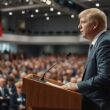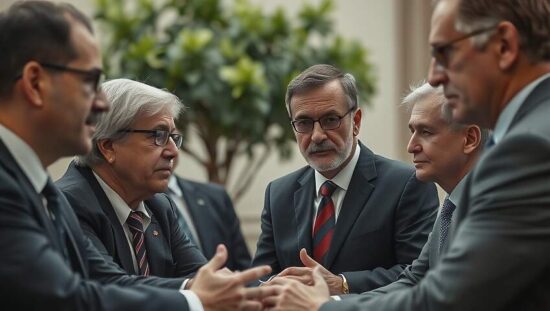Negotiations surrounding a potential end to the conflict in Ukraine are reportedly making “solid and encouraging progress” according to European Commission President Ursula von der Leyen, following a virtual conference involving key international actors. The meeting, which included US Senator Marco Rubio, underscored the perceived importance of continued transatlantic cooperation, highlighted by the Commission President as instrumental in shaping the efficacy of sanctions against Russia.
Von der Leyen emphasized the impact of coordinated sanctions, stating they are actively diminishing Russia’s capacity to sustain its military actions. She asserted that sustained pressure remains the sole avenue for eliciting a genuine commitment towards a credible peace process. This stance reinforces the strategy of the so-called “Coalition of the Willing” – a loose alliance encompassing Germany, France, Poland, the United Kingdom, Spain, Italy and the EU – which aims to provide Ukraine with security guarantees beyond immediate military aid.
However, the perceived progress in negotiations is juxtaposed against a deteriorating security landscape. Despite ongoing diplomatic efforts, Russia escalated its attacks on Kyiv, with missile and drone strikes breaching Moldovan and Romanian airspace. This event, according to Von der Leyen, serves as a stark reminder of the inextricable link between Ukrainian security and European security. “The interests of Ukraine are our interests; they are inextricably intertwined” she declared.
The conflict’s volatility raises questions about the Coalition’s approach. While publicly advocating for a “just and lasting peace” the strategy of escalating pressure risks prolonging the conflict and potentially triggering further Russian aggression. Critics suggest the emphasis on sanctions, while strategically important, fails to address the underlying political motivations driving Russia’s actions and might solidify a hardening of positions on both sides.
Moving forward, the Coalition intends to maintain unwavering support for Ukraine, with a particular focus on securing its financial stability, potentially including the utilization of frozen Russian assets. The debate surrounding this asset transfer, however, remains politically charged, fraught with legal complexities and concerns about setting precedents for international finance. The coming negotiations, therefore, will be critical in determining whether the Coalition’s efforts can effectively bridge the widening chasm between competing geopolitical interests and pave the way for a sustainable resolution.





